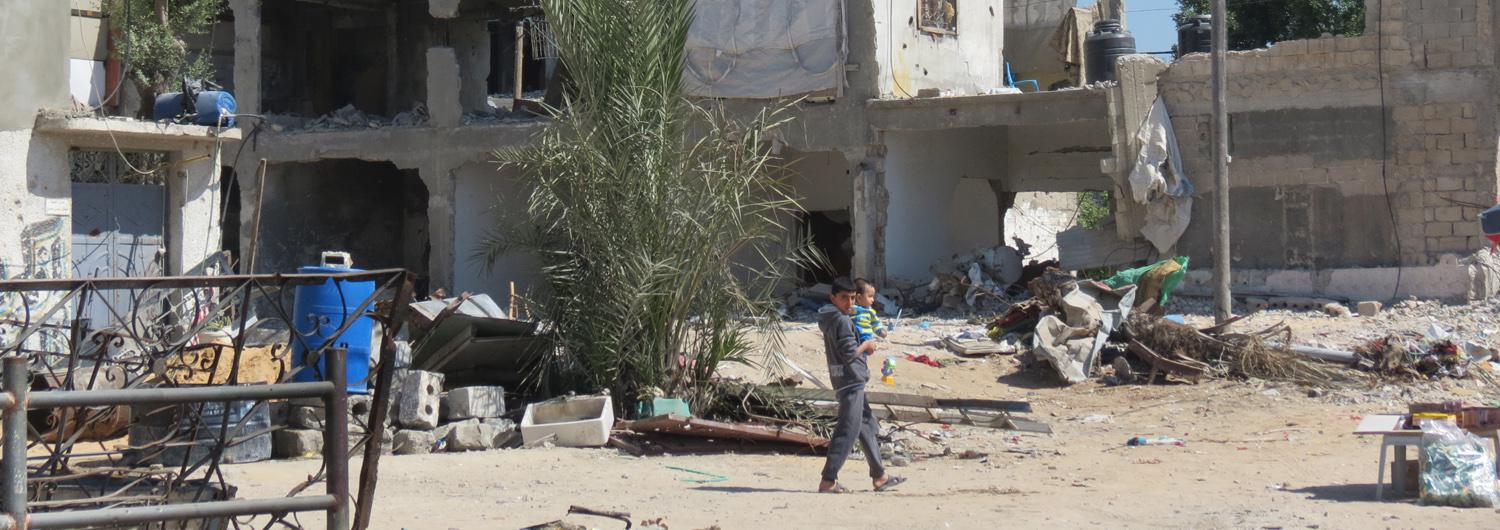News
The long road to recovery
05/11/14

When the war in Gaza ended, attention swiftly turned to the challenging task of recovery and reconstruction.
With vital water and energy infrastructure destroyed, affecting families’ daily lives and livelihood opportunities, our team in Gaza has been working for the past two months to ensure water systems are repaired.
Many of our staff are Gazan and have worked throughout the hostilities, despite the conflict’s impact on their own lives.
At least 450,000 people do not have regular access to water.
Unfortunately, the extent of the damage on the Strip is considerable, needs high, and recovery will take time. Electricity supply is still limited, as is a regular water supply. More than 110,000 internally people remain in UNRWA shelters, around 18,000 homes have been destroyed, and at least 450,000 people do not have regular access to water.
In eastern villages of Khan Younis, Action Against Hunger has been restoring access to domestic and drinking water for thousands of people, with UK Aid and OCHA funding. Where possible, these repairs to water systems have been carried out by local people, in a bid to help start income-generation again.
“Charities have a double role in the recovery,” explained Paolo Lubrano, country director for Action Against Hunger in the Occupied Palestinian Territory.
“First, they can provide immediate cash injections to the most vulnerable families. Disposable income is crucial to allow families to get back to their lives, provide for their children and restart their domestic routines.
“Secondly, they have an important role in starting up productive activities. Charities can use their deep connections with the local communities to identify small scale productive activities that can be rebooted with little investment and have a significant impact on the local economy.
“It’s a case of small agricultural activities, irrigation projects, support to small local cooperatives, including fisheries, livestock, and the transformation of food.”
Action Against Hunger is engaged in both. We are currently providing small unconditional cash transfers to the most affected families and we are supporting the agricultural sector through small local irrigation projects.
“The impact on the communities is profound,” said Lubrano. “Besides providing them with the means to cope with the aftermath of the conflict, it generates a feeling of ownership of the local economy.”